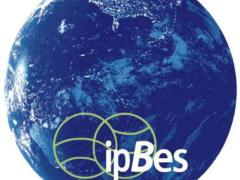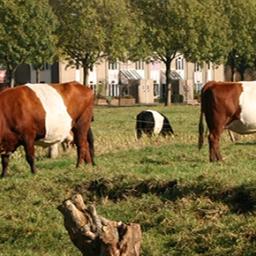PBL contributes to operationalizing the Action Agenda for Nature and People
PBL is exploring institutional options for the post-2020 global biodiversity framework. As part of this effort PBL has co-organised an international workshop (april 2019) to support the development and implementation of the Action Agenda for Nature and People a success. A workshop report and a recently published scientific article on the potential of the Action Agenda are available (links below).
At the fourteenth Conference Of the Parties (COP-14) of the Convention on Biological Diversity (CBD), held in November 2018 in Egypt, countries agreed to encourage state and non-state actors to develop voluntary biodiversity commitments that contribute to the achievement of CBD objectives and the development of the post-2020 biodiversity framework. Furthermore, what is now called the 'Sharm El-Sheikh to Kunming Action Agenda for Nature and People', was launched at COP-14.
While there is general support for a voluntary commitment process, the question now is how the Action Agenda should look like, what form voluntary commitments for biodiversity should take and if and how the action agenda could become a meaningful pillar in the post-2020 global biodiversity framework.
Aims of the Action Agenda
The 'Action Agenda for Nature and People' has the explicit aim to catalyse actions from all sectors and stakeholders in support of biodiversity conservation and its sustainable use. More specifically, its objectives are: (1) to raise public awareness about the urgent need to halt biodiversity loss and to restore biodiversity health; (2) to inspire and help implement nature-based solutions to meet key global challenges; and (3) to catalyse cooperative initiatives across sectors and stakeholders in support of the global biodiversity goals.
A recent publication by the Institute for Environmental Studies (IVM-VU) and PBL and an international science-policy workshop on operationalizing the Action Agenda for Biodiversity, organized by PBL with partners, reveals an already sizeable bottom-up non-state biodiversity activity internationally and provides insights in the way forward for the Action Agenda.
Potential of the Action Agenda
The Action Agenda urgently needs to be recognised worldwide as an important opportunity to showcase the many activities for biodiversity in society, and to incentivise stakeholders to take up new commitments for biodiversity and accelerate short term action. Political leadership and broad support from society for the Climate Action Agenda played an important role in reaching the Paris Agreement.
In the short-term – prior to COP-15 in Kunming, China in 2020 – the Action Agenda can fulfil similar strategic functions in stimulating a positive political momentum, contribute to catalysing a groundswell of actions for biodiversity and in this way support an ambitious agreement in Kunming in 2020. In this way the Action Agenda can contribute to making the post-2020 framework a truly ‘global deal for nature’.
Further efforts are needed to promote the Action Agenda, provide impetus, and to structure and coordinate activities and build coalitions and partnerships. One way to do this is to further develop the Biodiversity Action Agenda in synergy and in collaboration with other initiatives such as the Global Climate Action Agenda, the SDGs and the Ocean Commitments and with strategic partners in business, cities and regions and civil society.
Perspective beyond 2020
If a strong integrated Action Agenda emerges in the coming 18 months, a further engagement from the CBD and its parties will be expected by non-state actors and these actors need to be included in the post-2020 global biodiversity framework in a meaningful way.
Beyond COP-15, the question then becomes if and how non-state actors can become part of the post-2020 framework and how the Action Agenda will relate to the existing and new CBD implementation mechanisms (National Biodiversity Strategies and Acton Plans, national reporting, accountability mechanisms, ratcheting).




